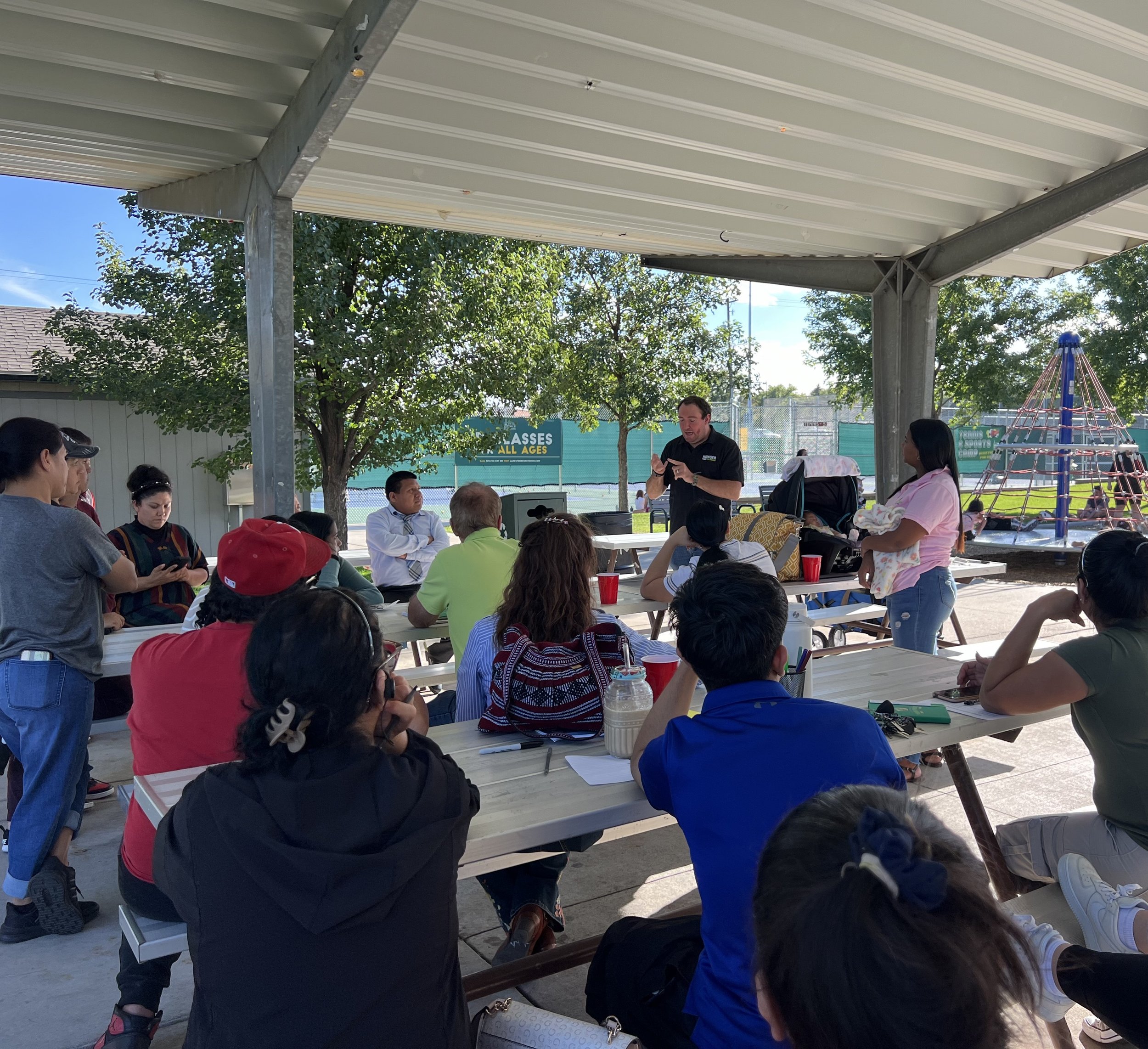No one expects to need to rebuild their lives. Still, thousands of adults and families find themselves in need of doing just that. And for 36 years, a safe harbor in that particular storm has been the Gathering Place. This refuge for rebuilding lives provides shelter, basic necessities and supportive programs to women, trans folx and children who are experiencing poverty and homelessness.
Food rescue blends innovation with food justice
It all started when Thai Nguyen joined other mothers at her child’s school to try and infuse more healthy fresh foods into their school meals. To make the budget work, they picked up unused food from a local food bank.
Now the Kaizen Food Rescue has grown and provided 5 million pounds of food through 21 partner organizations in 2021. “I saw what would happen to the food we were rescuing. Just our little school and what we could load in our cars to share with our kids and our families,” Nguyen said.
Aurora’s Village Exchange Center makes a difference for immigrants
Colorado nonprofit pivots to meet need for the Marshall Fire
The Sister Carmen Community Center is not an emergency response organization. The 44-year-old non-religious nonprofit found itself in the middle of need for one of Colorado’s most destructive fires, the Marshall Fire, that swept through Boulder County destroying thousands of structures, most of them homes. People in the community who had used the community center before for the various food, rent and other assistance provided were the first to trickle in. But they were quickly followed by hundreds of others who suddenly found hotels full, rent prices skyrocketing and a need to simply talk their way through the shock of losing everything in a matter of minutes.
Rising Up, Fort Morgan
Rising Up understands how food coincides with not only nutrition but how cultural identity has become equally important. As a partner agency of FBR, deliveries have increased to include foods that are commonly consumed by the different cultural and ethnic groups represented in Morgan County. However, it must be noted certain communities, for example east African do not want canned items. While the food item may be a traditional food, it is rejected because the packaging, in this case a can, diminishes its quality.
Food to Power - Colorado Springs
Founded in 2013 and formerly known as the Colorado Springs Food Rescue, the group's flagship program designed to reduce food waste while increasing food access, quickly evolved into “organism with a mission” — multi-faceted programming working together to cultivate a healthy, equitable food system in the greater Colorado Springs community.
Muslim Youth for Positive Impact (MYPI), Broomfield
A community of growers and gleaners is fixing a broken food system one harvest at a time
The unforgiveable truth understood all too well by the anti-hunger community is that there is far more food in the world than we need to ensure no one goes hungry. The issue is the access which our broken system fails to provide. Thankfully, communities across Colorado are working on fixing these systems and many are doing it with an equity lens for both the people who need the food as well as the farmers who need to make a living producing that food.
State agency looks to change the narrative on older adult food program
Amp the Cause: A case study in food access that responds to community need
t all started because a little boy raised his hand to answer this question: What do you want to ask Santa for this year His answer, born of need free from stigma, was simple. Food. “We knew that we were working with kids and families who were struggling in many ways,” said Julia Simmons, president of Denver-based Amp the Cause. “But to have a child put the need so clearly and simply, you can’t look away from that.”
ReKaivery Food Hub Launches Kickstarter
ReKaivery is on a mission to recover local food networks, starting with Larimer County. ReKaivery is creating carbon-neutral food hubs which will operate similarly to hyperlocal grocery stores within renovated, solar-powered shipping containers. These food hubs will make it easier for all community members to access, purchase and sell locally sourced food. ReKaivery is reducing barriers that exist within the local food space to ensure local food is accessible for all while supporting local suppliers by providing an equitable, convenient channel to sell to the local market. ReKaivery’s model is unique in that the products are sold on consignment. This means, the suppliers maintain autonomy over their pricing while ReKaivery manages and sells the products on behalf of the suppliers. ReKaivery’s food hubs will have a large community impact with a small environmental footprint.
Archuleta County Food Coalition finds deeper community engagement in their own pocket
He who holds the purse strings holds the power. It’s a well-worn adage, but no less accurate today than yesterday. Understanding this reality, the Archuleta County Food System|Food Equity Coalition centered their recent work – as so many in their community struggled with pandemic-related challenges – on breaking down one real financial barrier to a more equitable food system. The Coalition includes organizations, community food agencies and groups, growers and producers, and individual community members from across the rural county nestled in the San Juan National Forest.
Pivoting fundraising is the lynchpin to saving Fort Collins non-profit
Small business and non-profit join forces to curb hunger in mountain towns
If you’ve come to believe that necessity is the mother of invention, you might want to meet Emma Kottenstette.
She and her husband Matthew founded Farm Runners in 2015. The business provides food distribution services connecting local farmers and their products to businesses who need them in the North Fork Valley and surrounding areas. They also have their own grocery store in Hotchkiss.
Food Bank of the Kiowa Creek Community Church
The story of the Food Bank of the Kiowa Creek Community Church might be less a story of innovation in one thing, and more a story of innovation in all things. The historically small food bank has served the eastern half of rural Elbert County for more than 20 years. Shortly before COVID lockdowns hit, the church community had made the decision to revitalize and significantly expand the food access effort by making it a more central part of their own service mission. They couldn’t have known what they were in for.
St. George's Community Meals and Pantry
It was an all-hands-on deck moment in Leadville. Shortly after the March COVID shutdown, the St. George’s mobile food pantry ran out of food. The small pantry the church maintained also ran out. And the other two food pantries in the area open only one day a month were not equipped for daily operation and were shut down. For the first time, families were turned away.
It was a tough moment for a church that had provided community meals five days a week to all comers for nearly 40 years.
Benefits in Action
La Puente's Food Bank Network of the San Luis Valley understands the art of doing the difficult
Food access a critical step toward normalcy for people transiting from prison
If you are looking for CommunityWorks in Aurora or Colorado Springs, you should first look for a barbershop.
The non-profit found early on that the men and women who use their help to learn new work skills and receive certifications that could help them find steady employment weren’t interested in going to places that looked like workforce centers. They were looking for normalcy.
Mountain counties form food alliance aimed at creating an inclusive regional food system
For Brenda Kaiser, it all comes down to relationships. Kaiser is a community outreach coordinator for the Safe and Abundant Nutrition Alliance, a collection of groups working to build a new regional food system in Western Eagle, Garfield and Pitkin counties. Since February, Kaiser and two other community outreach coordinators have been hard at work collecting the stories of more than 200 individuals and families…

























